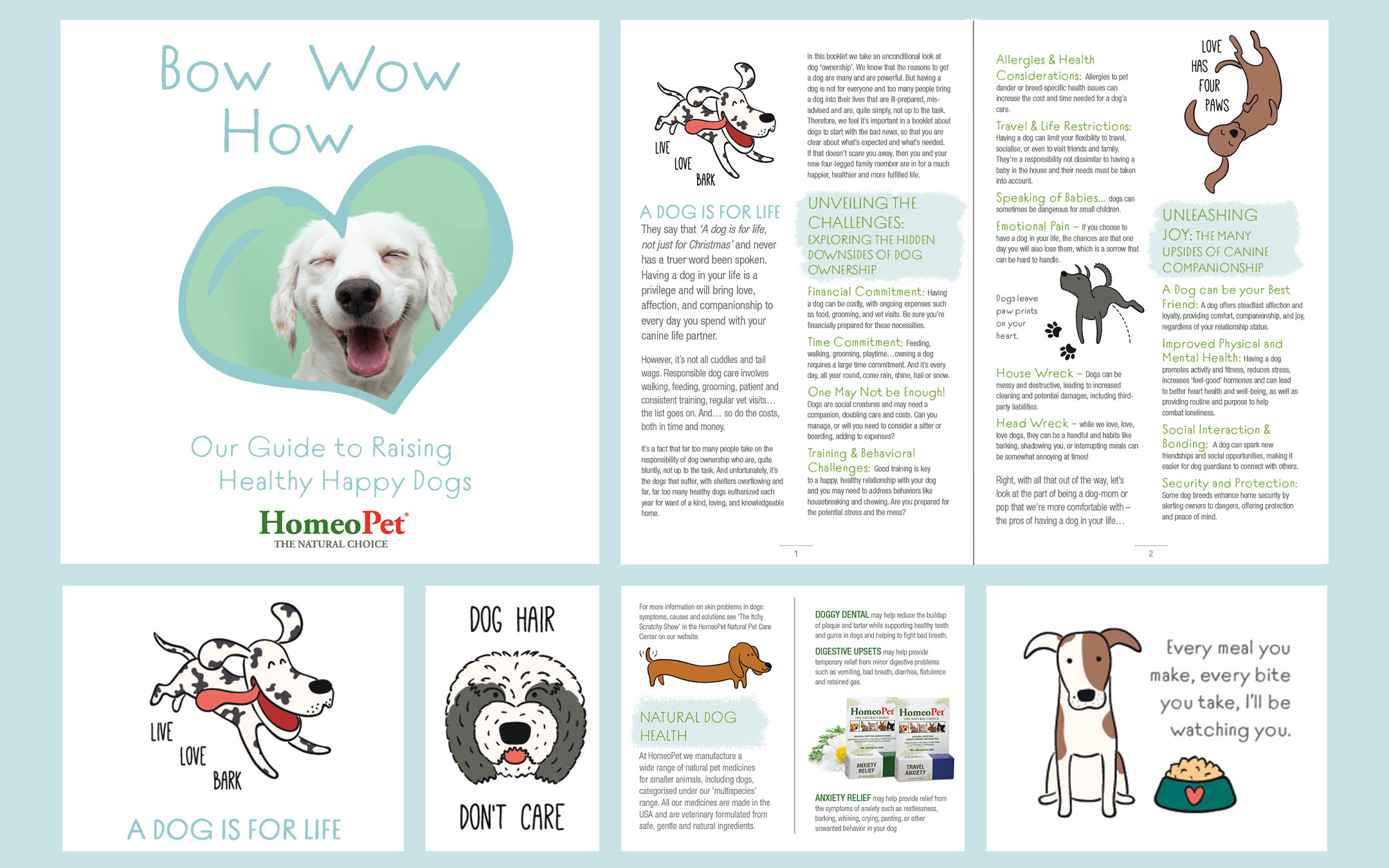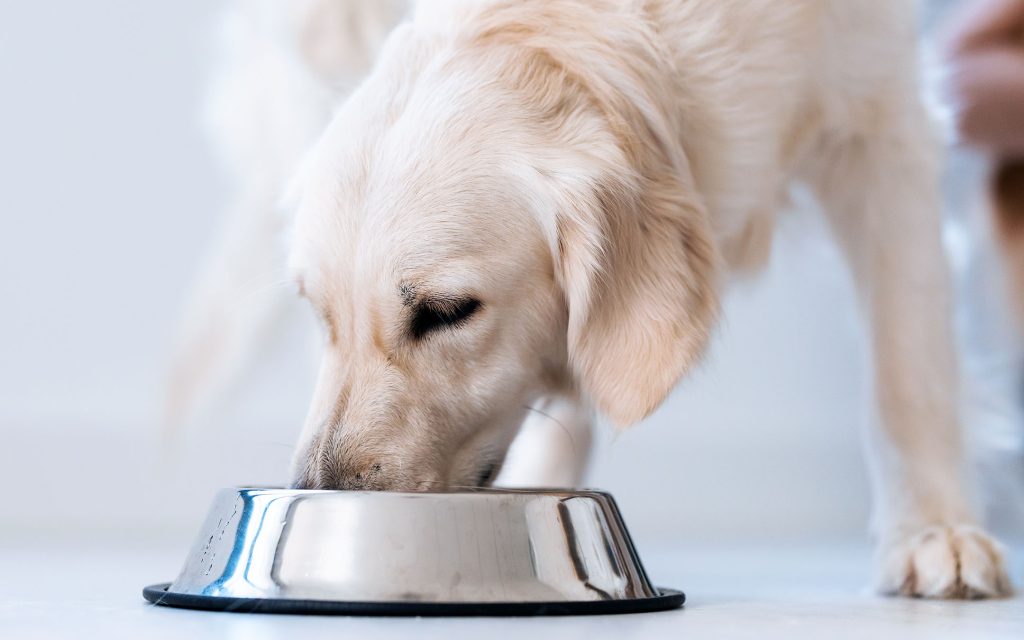Natural Pet Health, Pet Nutrition
Dog Care 101: Feeding: A Foundation for Health and Well-being
Next in our Bow Wow How blog series we get into Dog Care 101… and to start us off we explore the important topic of feeding.
Feeding is one of the most fundamental aspects of dog care, and what you provide for your furry friend plays an integral role in determining their overall health, vitality, and life expectancy. As with humans, diet influences a dog’s skin, hair, weight, digestion and even mood and there are many factors that you need to consider when choosing the right diet for your dog.
Nutritional Balance: Dogs require a diet rich in protein, essential fats, vitamins, and minerals. Commercial dog foods are usually formulated to meet these needs, but it’s crucial to select a high-quality product. Ingredients should be easily recognizable, with meat, poultry, or fish typically listed as the primary ingredient and fillers, artificial colors and flavors should be avoided. For those considering homemade or raw diets, consulting a veterinarian or pet nutritionist is vital to ensure that the meals are balanced and complete.
Age, Breed and Life Stage Considerations: Puppies, adult and senior dogs have varying nutritional requirements. For instance, puppies need more protein and fat to support their rapid growth, while older dogs might benefit from diets with fewer calories and added joint-supporting supplements. Likewise, lactating mothers and active working dogs have increased energy requirements. Similarly, larger breeds may have different dietary needs than smaller breeds, so do your research based on your dog’s age, breed and stage of life and if in doubt, talk to your veterinarian or canine nutritionist.
 Portion Control and Feeding Frequency: Overfeeding your pooch is a common mistake. A recent survey by the Association for Pet Obesity Prevention (APOP) in the USA showed that in 2022, 59% of dogs were classified as overweight or obese. Obesity can lead to a host of health issues, including diabetes, joint problems, and a shortened lifespan, so it’s essential to adhere to feeding guidelines based on your dog’s weight and activity level. Puppies usually require multiple small meals a day, while most adult dogs do well with two daily feedings. However, remember that these are general guidelines, and individual needs may vary.
Portion Control and Feeding Frequency: Overfeeding your pooch is a common mistake. A recent survey by the Association for Pet Obesity Prevention (APOP) in the USA showed that in 2022, 59% of dogs were classified as overweight or obese. Obesity can lead to a host of health issues, including diabetes, joint problems, and a shortened lifespan, so it’s essential to adhere to feeding guidelines based on your dog’s weight and activity level. Puppies usually require multiple small meals a day, while most adult dogs do well with two daily feedings. However, remember that these are general guidelines, and individual needs may vary.
Special Dietary Needs and Allergies: Just as humans can be intolerant or allergic to certain foods, so can dogs. Common allergens include beef, dairy, wheat and chicken and symptoms might range from gastrointestinal disturbances to skin issues. If an allergy is suspected, it’s essential to consult with your trusted veterinarian to pinpoint the cause and adjust your dog’s diet accordingly.
Feeding Schedule: Consistency is crucial, so do your best to ensure that chow time is roughly at the same time each day and always, always ensure that clean, fresh water is available.
Feeding your dog isn’t merely about filling their bowl with food. It’s about providing a balanced, nutritious diet that supports their health throughout every stage of their life. By understanding and respecting their dietary needs, you pave the way for a healthy and fulfilling life together and many years of happy, waggy tails.
 Click here to view and download Bow Wow How – a booklet all about dogs. Feel free to share it with friends, family, or anyone else you know that may be contemplating getting a dog.
Click here to view and download Bow Wow How – a booklet all about dogs. Feel free to share it with friends, family, or anyone else you know that may be contemplating getting a dog.





